For your house there are basically 2 points of entry, a door or window. So, always keep your doors and windows locked when away or gardening and you`re not focused on someone just walking into your house. Be aware that private backyards and large bushes around windows and doors are an enticing entry point for criminals. Consider upgrading the hardware for your doors and windows.
The most common time for a residential break and enter is during the day when people are away at work and school. Keep ground floor windows closed at night in case a criminal takes advantage of that easy target. The master bedroom is the most targeted room because cash and jewellery are usually stored in a dresser or night table. Keep valuables in another part of the house.
The most common time for a commercial break and enter is at night and weekends when the business is closed. Having a security camera system with email or text message notification greatly reduces the chance of a false alarm and gets police dispatched quicker when it is a confirmed break and enter in-progress.
Theft from vehicles usually occur between midnight and 5:00 am when most people are still sleeping. Don`t leave valuables in plain view inside your vehicle; an entry can also occur anytime or anywhere that it is parked unattended.
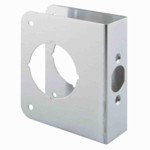 |
A door deadbolt plate greatly strengthens this part of your door. This helps prevents pries and keeps the door intact from a kick. Also consider adding a second lock to your doors. |
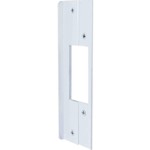 |
A strengthend door frame is just as important as the door. Replacing the small latchplate with a larger one and using 4 inch screws helps secure the door frame from force and splitting. |
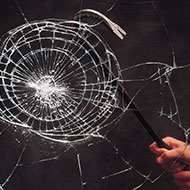 |
Basement windows and large windows around doors are vulnerable to being smashed. Adding a security laminate to these windows helps keep the window intact if an intruder tries to smash it. |
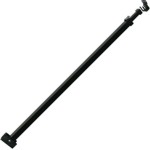 |
Sliding patio doors and sliding windows can sometimes be forced open with a bit of prying. Adding a simple security bar or even a wood stick in the sliding space would help secure this area. |
 |
Security cameras on your house give you an image of whoever does or tries to break into your house or car. It also assists in helping your
neighbours in case their property is targetted and not yours. They provide an exact time of the crime. Many systems provide email
alerts through motion sensing.
If you do install cameras ensure that you learn the software so that you know how to review video and make copies if the police ever make a request for video. |
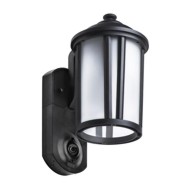 |
A light integrated with a camera would be a simpler solution to a full security camera installation. |
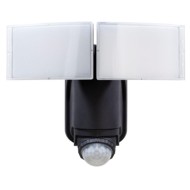 |
Lighting. Either leave your exterior lights on at night or install a motion light to deter criminals in your driveway. |
 |
Home alarms. This may deter some criminals upon entry and provides notification if an entry does occur to your home. |
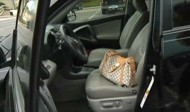 |
Don`t leave valuables like a purse, wallet or cell phone in plain view in your car. At least hide them in your trunk. Always lock your car doors and ensure the windows are up when you park your car. |
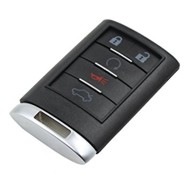 |
Newer cars with keyless radio fobs that can unlock and start a car by proximity are vulnerable to signal boosters catching the signal and amplifying it for theves. Keep these fobs a great distance from your car and away from the front rooms of your house when at home. |
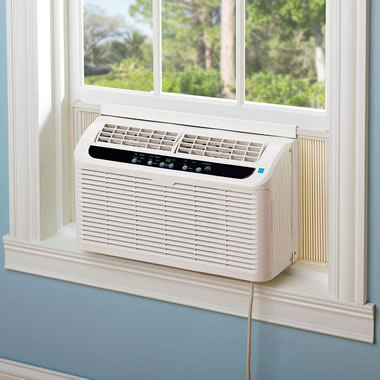 |
Window air conditioners should be securily placed in a window so that an intruder from the outside cannot remove it to enter your house. |
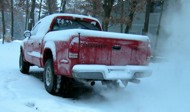 |
Don`t idle your vehicle unattended in the driveway to either warm it in the winter or cool it in the summer. Thieves have been known to steal these easy targets. |
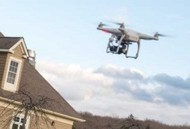 |
Although most private drone operators view these as toys, there are some safety and privacy concerns that must be respected. Canada has a new law regarding the use of these drones: Drones and the law. Fines go up to $3,000. |
 |
Call the police if you observe something suspicious in your neighbourhood. Let the police determine if it is a problem or not. Always call the police for any crime, no matter how small it may seem. If you find your property disturbed but nothing taken, still call the police. The criminal may have taken something of greater value from your neighbour and your call may help with the investigation. No crime is too small. If the police do not know about a problem then how can they fix it. |
 |
When going away for an extended time do not post anything on social media until you return home. While away, ensure a neighbour checks in
on your home and clears away any papers, snow or long grass that might suggest no one is home. Let a trusted neighbour know that you will be
away so they keep a look-out for suspicious people/vehicles around your home.
Consider having some interior lights on timers to make it appear that someone is home. |
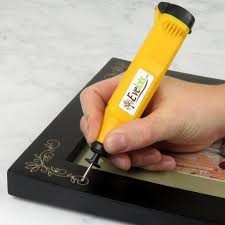 |
Engrave and/or photograph property of value including serial numbers. Having a list of property that can be identified properly helps police in the event that they recover property at a later date. |
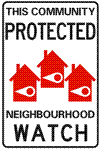 |
Get involved in a neighbourhood watch program. Neighbours looking out for each other is a great way to observe suspicious activity and suspicious people and get it quickly reported. Strength in numbers. |
